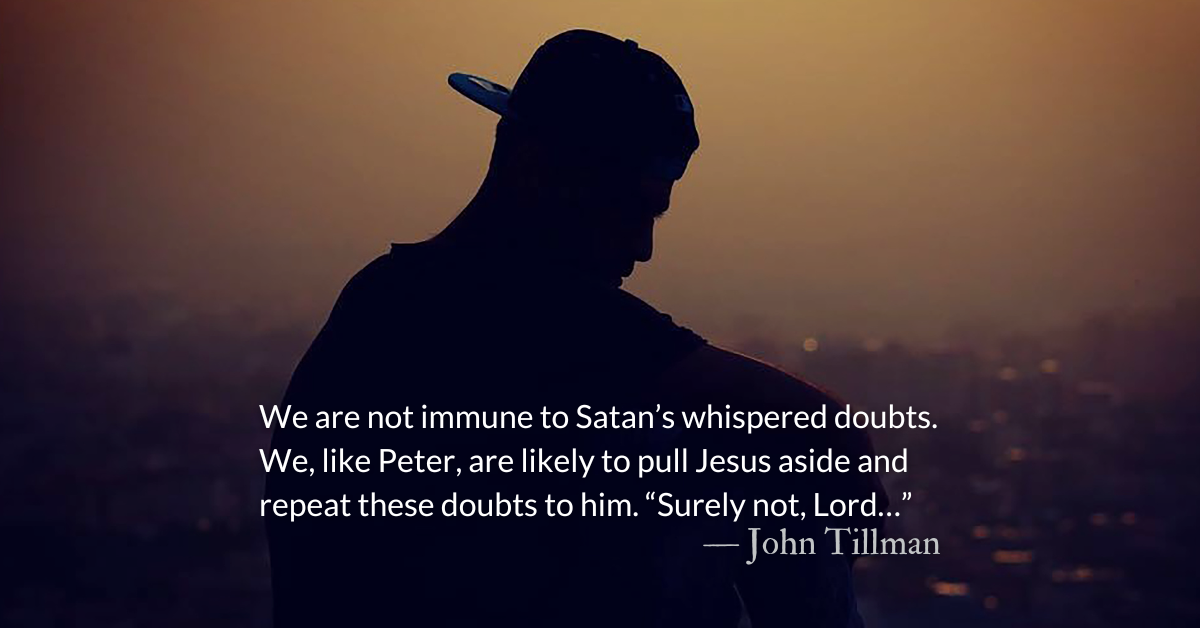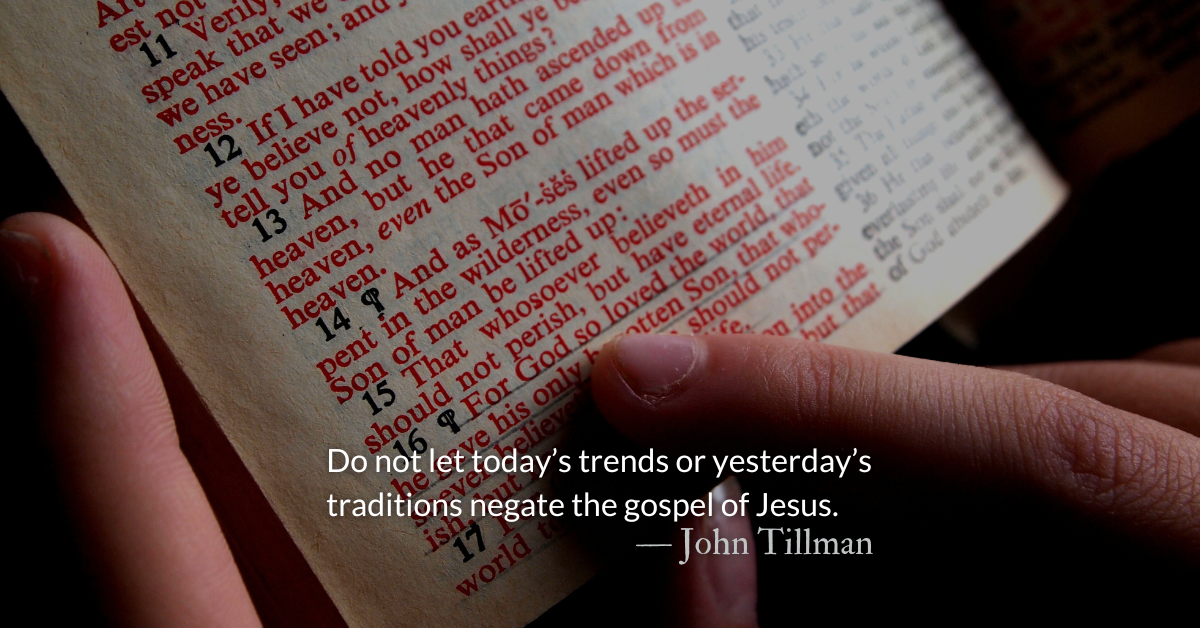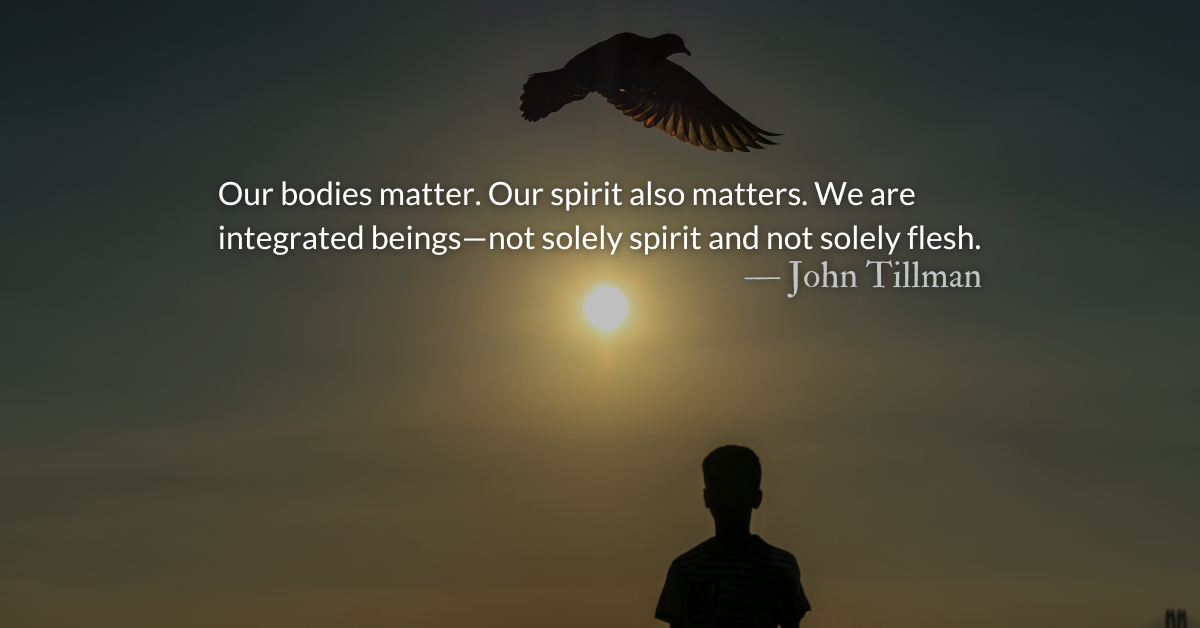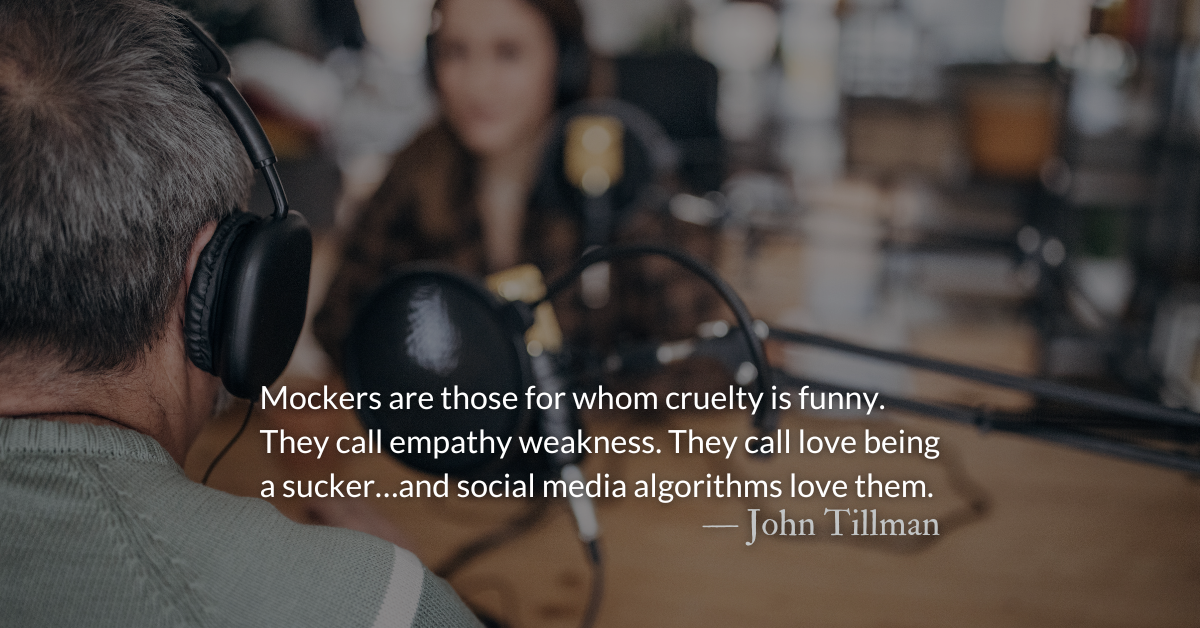Links for today’s readings:
Feb 27 Read: Proverbs 18 Listen: (2:23) Read: Mark 8 Listen: (4:29)
Feb 28 Read: Proverbs 19 Listen: (3:09) Read: Mark 9 Listen: (6:16)
Mar 1 Read: Proverbs 20 Listen: (3:19) Read: Mark 10 Listen: (6:42)
Scripture Focus: Mark 8.29-33
29 “But what about you?” he asked. “Who do you say I am?” Peter answered, “You are the Messiah.” 30 Jesus warned them not to tell anyone about him.
31 He then began to teach them that the Son of Man must suffer many things and be rejected by the elders, the chief priests and the teachers of the law, and that he must be killed and after three days rise again. 32 He spoke plainly about this, and Peter took him aside and began to rebuke him. 33 But when Jesus turned and looked at his disciples, he rebuked Peter. “Get behind me, Satan!” he said. “You do not have in mind the concerns of God, but merely human concerns.”
Reflection: Hating or Loving Jesus’ Plan
By John Tillman
Jesus tells his disciples his plan. They hate it.
Biblical writers never glamorize the “heroes.” They show them up close, with all their flaws. Peter is one example. Mark (most scholars agree) was close to Peter and used him as the primary eyewitness for his gospel. Despite Mark’s gospel being from Peter’s perspective, it doesn’t conceal Peter’s failures.
This story shows one of Peter’s best moments right next to one of his worst.
Mark is building his story to a climax. Jesus’ miracles and signs proved his authority and power. His disciples believed in him. Peter declared Jesus was the promised Messiah. Then Jesus revealed his plans plainly. I’m going to suffer. I’m going to die. I’ll rise from the dead.
In Matthew’s account, when Peter calls Jesus the Messiah, Jesus praises Peter so expansively that some corners of Christianity think the church is literally built on Peter, instead of Jesus, and that Peter personally holds the literal keys of Heaven, greeting us, like a hotel porter, at its gates. Mark skips that glowing (and confusing) praise, jumping straight to Peter’s low point.
Peter thought he had to talk sense into Jesus. But “sense” wasn’t what Peter was listening to. Satan whispered in Peter’s ear and Peter passed the message along like a game of infernal telephone. Jesus recognized the message’s source. He calls Peter “Satan,” saying that he is only thinking of human concerns.
We wish God would tell us his plans plainly. One reason he might not do that is because we might not understand those plans and would reject them. We are not immune to Satan’s whispered doubts. We, like Peter, are likely to pull Jesus aside and repeat these doubts to him. Surely not, Lord. I can’t really do that. Send someone else. I’m not worthy to do that. I’m afraid. I’m too sinful. I’m not strong enough. My faith is too weak.
Jesus knows well what Satan’s temptations sound like. (Matthew 4.1-11; Luke 4.1-13) Hear Jesus say, “Get behind me, Satan” as he rebukes doubts, fears, and lies. Hear also from Jesus, “Release your human concerns. Set your mind on God’s concerns.”
What is Jesus’ plan for his disciples in plain language? “Deny themselves and take up their cross and follow me.” Do you hate it? Or do you love it? The way of the cross is the only way that leads to life.
Divine Hours Prayer: A Reading
Then Jesus said to his disciples, “If anyone wants to be a follower of mine, let him renounce himself and take up his cross and follow me. Anyone who wants to save his life will lose it; but anyone who loses his life for my sake will find it. “ — Matthew 16.24-25
– From The Divine Hours: Prayers for Springtime by Phyllis Tickle.
Read more: Beyond Femme Fatales
Temptations no longer stay on dangerous corners. Temptations leap right into our bedrooms and living rooms through our televisions, apps, and devices.
Read more: Greed Versus Integrity
Greed and integrity are enemies. Integrity short circuits greed. Greed corrupts integrity.






